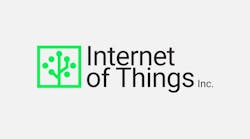Airports Step Up Use of Thermal Scanners to Mitigate Spread of COVID-19
It’s an understatement to say airports are “essential”, no matter what the crisis. Yet, no matter, the COVID-19 outbreak has brought the aviation industry to the brink of economic collapse, not to mention the effect the virus is having on mental health and the loss of human life that continues to grow around the world.
Dr. Anthony Fauci, the nation's top infectious disease expert, said the country is still in its “first wave” of the coronavirus pandemic – a warning that comes as the death toll from the disease surpasses 132,000 in the US and it is estimated 85,000 more people could die due to the virus by October 2020.
Air travel has been one of the hardest-hit industries as a result of the outbreak and experts say it could take half a decade or longer to recover to the levels seen before the coronavirus pandemic. According to Airports Council International (ACI) World, it is estimated that there will be a reduction of more than 4.6 billion passengers for all of 2020 and the decline in total global airport revenues is estimated to be more than US$97 billion this year.
Since the outset of the pandemic international airports have been utilizing thermal imaging devices such as camera-mounted scanners. In addition to airports; hospitals, schools, warehouses, and other high traffic locations have started to adapt the technology to their workplaces in an effort to keep employees and customers safe from the spread of the coronavirus.
Like 9/11, the coronavirus crisis has brought about a similar kind of paradigm shift in air travel and it is predicted we will never look at flying or airports the same way again. Today thermal fever detection systems are playing a vital role in protecting people and enabling safe social distancing in airports. They are one of many tools being used to mitigate the spread of the deadly virus.
According to the airline strategy firm, SimpliFlying, airports have in total more than 70 different areas in the “passenger journey” that will either change or see new protocols and technologies introduced to restore confidence in flying.
In the U.S., Paine Field in Washington State was one of the first airports to begin checking the temperatures of passengers, and last month the Prime Minister of Canada mandated that all airport workers and passengers travelling to, from or within Canada must undergo temperature checks before boarding planes.
In the continuing effort to stop the spread of the virus airports and other high-traffic facilities are starting to lean toward using thermal sensor technologies like ThermalPass and other sensor-based solutions. Unlike thermal imaging cameras, sensor-based solutions are less expensive, more accurate and less obtrusive to personal space, and do not infringe on privacy.
These systems can rapidly scan passengers as they enter terminals without collecting personal data or using facial recognition software. At a distance of approximately 15 feet or less, thermal sensors can detect fevers at a rate within +/- 0.2℃.
With the recent resurgence of the coronavirus in many US states, more employers are looking to deploy tools like crowd-accommodating touchless sensor devices to mitigate risk of infection and for liability insurance and accountability purposes, to demonstrate that they are taking steps to ensure worker and customer safety. While the debate continues on how to reopen economies during and after the coronavirus pandemic, the CDC reports that COVID-19 is likely going to be around beyond this season, and possibly beyond this year.
Today, the pandemic is driving more companies to adopt risk-mitigating protocols to protect the health of their employees and hopefully avoid another mass shut down. By embracing emerging automation technologies such as thermal fever detection systems along with digital payments, and robotics, businesses will have a better chance of building back the momentum they had going into the crisis.
Michael Lende is president and CEO of Internet of Things Inc., parent company to ThermalPass www.thermalpass.com, a crowd accommodating medical-grade thermal sensor temperature screening system that takes 20 temperature readings per second to help mitigate the spread of COVID-19.





